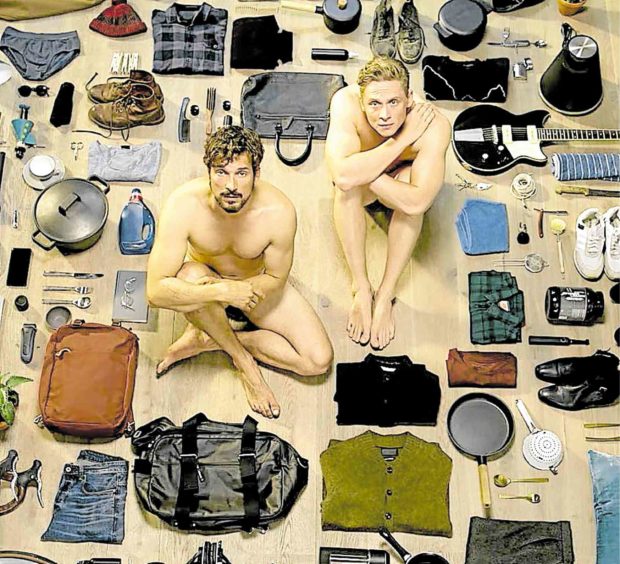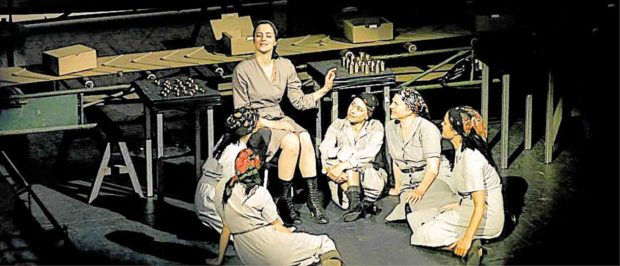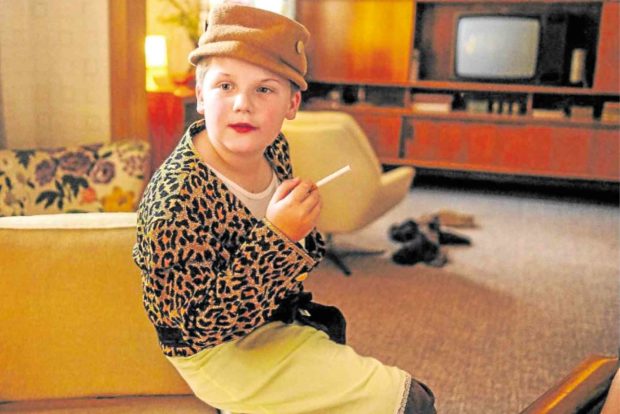4th German Film Week commemorates 30th year of the Fall of the Berlin Wall
If you’re a film buff who is intrigued by the idiosyncratic appeal of German films, you’re in for a moviegoing treat.
The fourth edition of the German Film Week, which begins its seven-day run at SM Megamall and SM City Manila on Nov. 6, allows cineastes not just to mull over Germany’s role in shaping history, but also to see its movies outside the arthouse confines of such delectable cinematic treats as Fritz Lang’s visionary “Metropolis,” Rainer Werner Fassbinder’s character-driven flicks, Wim Wenders’ introspective dramas, Leni Riefenstahl’s polarizing propaganda films and Werner Herzog’s riveting documentaries.
The festival, which opens with the screening of Michael Herbig’s “Balloon” on Nov. 6 at SM City Manila, will commemorate the 30th anniversary of the Fall of the Berlin Wall with a 12-title lineup. (Tickets are priced at P100 with 50 percent discount for students.)
Nope, we aren’t just talking about recent award winners and contenders, like Florian Henckel von Donnersmarck’s Oscar-winning “The Lives of Others” (2006), Leander Haussmann’s “Berlin Blues” (2003), Christian Petzold’s “Barbara” (2012) or Wolfgang Becker’s Berlin-winning “Good Bye, Lenin!” (2003).
Some of them are “fresh off the oven,” so to speak—like Sherry Hormann’s “A Regular Woman” (2019), as well as Florian David Fitz’s “100 Things,” Marcus H. Rosenmuller’s “The Keeper,” Wolfgang Groos’ “Cold Feet,” Andreas Dressen’s “Gundermann” and Caroline Link’s “All About Me” (all released in 2018).
Article continues after this advertisementIf you belong to the so-called “fairer sex,” a term that sounds almost obsolete in a world that is expected to observe political correctness at all times, you’ll find it ironically stifling to see how the horrors of being an independent-minded female are played out in “A Regular Woman.”
Article continues after this advertisementProtagonist Hatun Aynur Surucu is a German woman (Almila Bagriacik) with Turkish and Kurdish roots living in Berlin whose liberal beliefs are in constant conflict with the values of her devout Muslim family.
Intriguingly, the gorgeously photographed production begins after Aynur falls victim to “honor killing” in 2005, slain by her brother Nuri. Her struggle for a self-determined life starts when she’s pulled out of school to be married off to Botan, her much-older cousin, in Istanbul.
She stirs up a hornet’s nest when she breaks tradition and decides to leave her abusive husband during the last trimester of her pregnancy. She then returns to Berlin and pursues the life of a “free” woman. To make ends meet, she works as the only female electrician of her company.
It’s a difficult situation that comes to a head when Aynut’s newfound freedom emboldens her to stop wearing her headscarf and start dating a Caucasian biker (Jacob Matschenz). But Nuri isn’t content merely disowning Aynur, who’s now considered a constant source of embarrassment for her family in their Muslim neighborhood.
The quirky, frisky and breezy comedy “100 Things” takes place in a more contemporary setting, tackling relatable themes that merge friendship and materialism—and the things that matter most in life.
It follows the story of business partners and bosom buddies Paul Konaske (Florian David Fitz, who also directs the film) and Anton Katz (Matthias Schweighofer) whose enduring friendship is put to the test after they cross paths with American venture capitalist David Zuckerman (Artjom Gilz).
During a drunken rant, Paul and Anton make a bet to find out who can go longer without material possessions. They decide to relinquish all their worldly belongings for 100 days, during which they get back one item each day till the bet is called off.
But the competition gets murkier when a deal-breaking, estrogen-fueled element is introduced into the “game”: the mysterious Lucy (Miriam Stein)!
“The Keeper” retraces wartime history by revisiting the true story of German soldier Bert Trautmann (David Kross) and Englishwoman Margaret Friar (Freya Mavor).
They meet and fall in love at a camp for prisoners of war near Manchester at the end of World War II. But even as the star-crossed lovers struggle to overcome prejudice, public hostility and tragedy, Bert and Margaret emerge from the ashes of war banking on Bert’s prodigious talent as a goalkeeper in football, which eventually endears him to his British captors.




